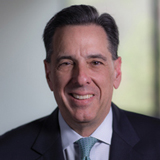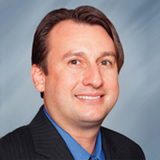Up to 65% of cancer care is delivered via community cancer centers that are not part of a hospital or academic center. These centers are feeling the impact of COVID-19 as the pandemic reshapes the way these facilities provide care to patients.
Each of the panelists represents a community-based provider and discussed some of the measures they have taken to ensure that they can continue to deliver care to patients during these extraordinary challenges.
“We can shut down the country; but we can’t shut down cancer. Cancer keeps going,” said Mr Okon. The aim of COA is to keep community facilities open and treating patients. COA quickly mobilized to deliver information and resources, including a Listserv and a resource webpage, to community-based providers.
Mr Okon said that practices are seeing a 20% to 30% reduction in visits, and telehealth has been important. COA worked to promote the implementation of telehealth for its individual practices and held webinars that focused on practical solutions for providers. COA has also lobbied for insurers to stop prior authorizations and offered guidance to practices on how to apply for governmental grants through the CARES Act.
Dr Patton said that the priority of community oncology is to care for fragile and vulnerable populations. But, he added, Tennessee Oncology also wants to protect providers, who are the heroes. To protect patients and providers, Tennessee Oncology has implemented a series of measures meant to limit exposure to the new coronavirus, keep its clinics open, and deliver oncology care.
“Our primary focus is on our active treatment patients,” Dr Patton said, adding they have been able to maintain their curative and palliative patients and deliver therapy during this time. To do this, Tennessee Oncology has adopted Centers for Disease Control and Prevention guidelines, including risk-assessment protocols; enhanced sanitation practices; and tightened screening for visitors, patients, and practitioners.
Although new patient visits are down 30%, Dr Patton said, “Because we are able to deliver our primary service, we think that our practices will be able to survive.”
“We are bracing for impact,” said Dr Gordan. “We trying to prepare staff as in wartime; to deliver the best care and best quality” to more than 75,000 new patients annually.
Since the beginning of the pandemic in early March, Florida Cancer Specialists has reduced its infusion volume by approximately 7%, patient visits are down by 30%, and there has been a drop in new patient visits of approximately 24%. Dr Gordan expects this reduction in new patients to have an impact on the practices in the weeks ahead, because new patients are the mainstay of the oncology business.
Maintaining patient and staff health is the priority, and their practices have adopted a range of policies and protocols to ensure that. To promote physical and mental well-being among staff, sick leave has been extended and behavioral health services are available to all.
To keep patients safe, they have put social distancing measures in their infusion suites, placing chairs 6 feet apart and consolidating other spaces. Telehealth is being used wherever possible, and they are delaying nonurgent appointments.
“We are one community and we will prevail, but we need to work together,” noted Dr Gordan.





